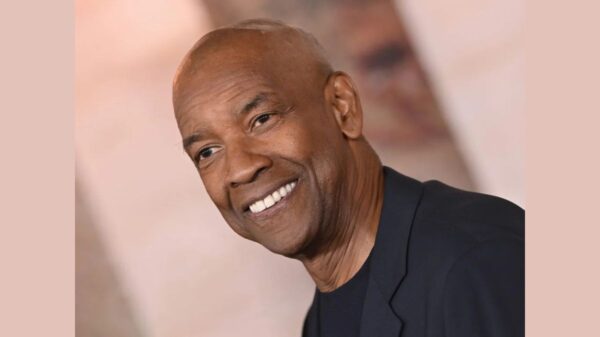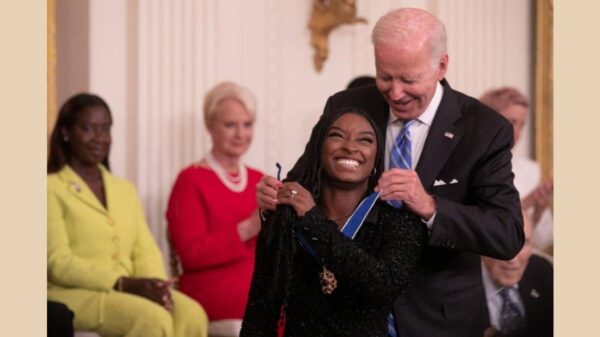By Carla Hay
NABJ Black News & Views
Reprinted – by Texas Metro News
https://blacknewsandviews.com/
Early awards buzz rides a high note for Denzel and ‘The Piano Lesson’
Black families haunted by the past, trying to survive the present and holding hope for the future are themes of the Netflix dramatic film “The Piano Lesson,” adapted from August Wilson’s Pulitzer-winning play.
With a family at the center of the story, it’s perhaps fitting that making “The Piano Lesson” was a family project for Oscar-winner Denzel Washington and three of his children. Denzel was a producer of “The Piano Lesson,” which marks the feature-film directorial debut of Denzel’s youngest son, Malcolm Washington, and has John David Washington, Denzel’s eldest child, in the starring role. Katia Washington, Denzel’s second-eldest child, is an executive producer of the movie, which Malcolm Washington co-wrote with Virgil Williams. While Denzel does not appear in the film, it is producer Denzel’s third movie adaptation of a Wilson play, after 2016’s “Fences” and 2020’s “Ma Rainey’s Black Bottom,” which both earned Academy Awards.
“The Piano Lesson” primarily takes place in 1936 and depicts a family feud between two siblings who disagree about what to do with a piano that has been in the family for generations. John David Washington portrays Boy Willie, the bachelor sibling who wants to sell the piano so that he can become a land-owning farmer in his home state of Mississippi. Danielle Deadwyler plays Berniece, Boy Willie’s sister, a single mother who lives in Pittsburgh’s Hill District with the piano, along with her 11-year-old daughter, Maretha (played by Skylar Aleece Smith), and the siblings’ uncle Doaker (played by Samuel L. Jackson), who is the brother of the siblings’ father, Boy Charles. The siblings’ parents are deceased, but Boy Charles is seen in a few flashback scenes and is portrayed by Stephan James.

One interesting side note: Samuel Jackson played Boy Willie in the original 1987 Yale production of “The Piano Lesson.” He also was a Boy Willie understudy in the 1990 Broadway production, and he was Doaker in the 2022 Broadway revival.
In the movie, Boy Willie travels from Mississippi with his close friend, Lymon (played by Ray Fisher), to help him move the piano that Boy Willie is certain Berniece will give to him. However, Berniece is just as stubborn and strong-willed as Willie. She wants to keep the piano in their family and in their home. Other cast members in “The Piano Lesson” are Corey Hawkins as a preacher named Avery, who is courting a reluctant Berniece; Michael Potts as Wining Boy, a longtime friend of Doaker’s; and Erykah Badu as nightclub singer Lucille. The land in Mississippi that Boy Willie wants to buy is from the Sutter family, a white clan whose ancestors enslaved the ancestors of Boy Willie and Berniece. Meanwhile, Berniece thinks the piano (which has engraved portraits of her family ancestors) might be haunted, but she still wants to hold onto it as an important family heirloom.
“The Piano Lesson,” released in theaters and on Netflix last month, is attracting early awards recognition. For the 2025 Film Independent Spirit Awards, Deadwyler is nominated for Best Supporting Performance, and “The Piano Lesson” has a nod for Best First Feature. At the 2024 Gotham Awards, the principal cast members of “The Piano Lesson” received the Ensemble Tribute prize, while Deadwyler was nominated for Best Supporting Performance. The 2025 African American Film Critics Association Awards have also announced that Malcolm Washington is receiving the Emerging Director Award, while Fisher is getting the Breakout Performance Award, for their work in “The Piano Lesson.” At “The Piano Lesson” press junket in New York City, Black News & Views caught up with John David Washington, Deadwyler, Jackson, Potts, Malcolm Washington, and Fisher for exclusive interviews. In addition, Denzel Washington participated in a virtual press conference for “The Piano Lesson” and added his thoughts.
What did you learn about yourselves from making “The Piano Lesson”?
John David Washington: How being polite, being kind, being God-fearing, being diligent and relentless in my pursuit of my best self as an artist, to uphold that, because it’s gifted to me. …. To have these big dreams that they [my ancestors] had, but to always behave in a way that they would be proud of.
Deadwyler: I’ve been encouraged, through the making of the film, to appreciate the unknowns, even in the cycle of it. There are many stories that I don’t know about my family. There are some things about our families and our histories that cannot be extracted from documents or any records. And that’s okay. But there is something intuitive that you possess in connecting yourself to [ancestors]. That encourages me.

What can people learn from “The Piano Lesson” movie that they might not be able to get from “The Piano Lesson” play on stage?
Jackson: There are certain events that are going to happen that are going to open up the play in a whole other kind of way—such as going [the male characters] going to the [night]club or sitting on the porch talking.
Potts: You don’t have to use as much of your imagination.
Jackson: You see the Hill District and the people in it. … You lose dialogue, but you gain visual stimulation.
Potts: And it’s going to be accessible to a wide audience.
If you could ask anything August Wilson anything about “The Piano Lesson,” what would it be?
Fisher: I would ask him he why named my character Lymon. I know the name Lymon means “meadow dweller.” And so, in tapping into that, I thought, “This is someone who’s probably out in the field, his head’s a little in the clouds.” … For me, it’s just maintaining the truthful nature of the character and making sure it is as deep, rich, and as colorfully executed as what August Wilson would have wanted.
Malcolm Washington: I would ask August if we understood what he was trying to tell us, if we are picking up what he put down and building on the legacy that he left for us. … For me, the idea of our connection to the ancestors was so important … there are so many stories of family members from the past in the story. And I knew I wanted to bring all of that together in the film’s finale. The image of a family portrait across generations became really important and central.
Is it important in your mind for people to see a Black family unit work together on something like this movie to produce something that’s about preserving the history and the culture of the Black experience?
Denzel Washington: The real producer isn’t here, which is their mom [Pauletta, Denzel’s wife]. She’s the real producer. And she actually said to me, “Malcolm’s got some ideas. You should talk to him and put some things together,” and that’s kind of how it started.
What kind of research or personal experiences did you draw upon to connect with each of your characters?
Denzel Washington: Our connection to our ancestors all the way back to Africa is a real thing. It’s a tangible, spiritual, real thing that you can feel. I remember asking my mother when I started to make it as an actor. I said, “Ma, you ever think [I could do it]?” She said, “Boy, all the people been praying for you. All the souls that were sacrificed for you.”
And you start thinking about it that way. All of those that look like us, that never made it, that got hung, that got shot, that got killed, generation after generation after generation. And all of that is in us. You know, and we go down in there, and it’s scary too. It’s in there, and it comes out in ways that you can’t calculate. It’s not Method [acting], you know? It’s spiritual.





You must be logged in to post a comment Login